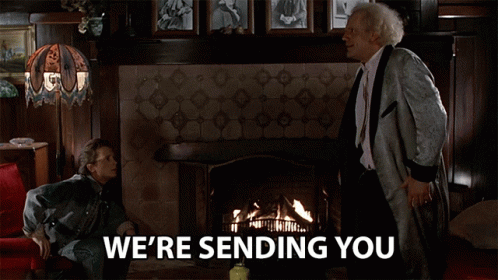World Building - tips & tricks - I

Hiya.
This is a free article for student novelists wanting to get better at world-building.
I have been thinking about worlds for a long time, more than 2 decades. These tips are insights from what I've been thinking about, with references to online sources.
I will be referencing the online materials up front, since I don't own these resources, and I want to bring awareness to those creators.
Any value you will find, will be from me talking about my own opinions, and defending them.
This article is stand-alone, but alone...it is not enough.

What I am trying to say, is that this article is not enough for world-building - these are just tips and tricks, and are meant to be completed with self-study, or a complete, exhaustive curriculum which I am still building on this site.
Media Referenced
- Lord of the Rings - Wikipedia, and wiki
- Video on Salaar's voting system. Solid Movie Stuff uploaded this. Warning - Telugu required. Link to video, here.

Numbers Matter
This article goes into numbers, and their role in world-building.
One thing I've noticed across the board in good media, is that the creator cares enough to add detail, however painstaking it is.
- In the western world, there are great examples in Lord of the Rings, where the map is detailed accurately, and there are living languages.
- There are 13 districts in the world of Hunger Games. Not 12 - or 14. 13.
- In Salaar, the voting system is mentioned sooner than later, giving viewers a good understanding of the value of a vote.
I will be referencing Salaar a lot.
If you understand Telugu, see referenced video explaining the voting system by Solid Movie Stuff, linked in the beginning. The movie is available on Netflix, as of October, 2024 - link to trailer here.
If you don't know Telugu, and you're not used to Indian cinema, I am not sure if you'll like it or not.
If you're that person, I have you covered. Here is that famous remix of Sam's potatoes, uploaded by MakeHappyVideos.
Let's get started.
Using numbers is not fun for the writer - they singlehandedly:
- Increase risk of errors - a lot.
- Add too much scope.
- Raise expectations, that can be difficult to meet.
Increase risk of errors - a lot.
Readers may not pick up on a knight's sword length, but if you clearly say, that as a longsword, it's very short - then your beloved readers will get confused, and even disappointed.
I expect knights to have long swords, good horses, and great armor, and for them to use it well.
So if a writer says that this knight's sword is 12 inches long, it's about as long as a scale, or ruler. I don't foresee him cutting down enemies, from horseback - and if he does do it, I will stop trusting the writer.
Add too much scope.
Introduce questions for the reader that are great, but can be difficult to explain away, and might even confuse the reader.
The only way I know of how to resolve this, is to edit the novel in future versions, explain more, or convert the bug into a feature (improvise).
Raise expectations, that can be difficult to meet.
If you say that there is a voting system in an oppressive regime - that one major vote equals 2 mid-size votes, and 1 mid-size is worth 3 tiny votes, the reader will pay attention to this.
Since book time is devoted to it, readers are compassionate, and are willing to listen more than they really ought to. If it turns out this information is unnecessary, then the reader might get frustrated. Either way, these words can go towards something else, in accordance with Chekhov's gun.
Watching Salaar, number 3 happened to me. My expectations were raised.
Now, here are the benefits of using numbers, correctly, and why it's important to consider it, along with the above tradeoffs:
- Numbers are realistic.
- Numbers give details.
- Numbers are efficient.
- Numbers give depth.
- Numbers are useful.
Numbers are Realistic.
In the real world, there is a big difference between 10$ and 100$ - it's not just a zero. As a consequence, people will look at those bills, and items, differently.
If we take an auto-rickshaw in India, and tip 100$ for a 10$ ride, we can change a life forever. If the bill for weekly groceries is 20$, and I pay 100$, the grocer will get annoyed in America - he can't take more than what he sells me for. It would be weird.
Trust me - when an employee at the DMV was very nice to me, I asked him if I can tip him. He smiled and said that as a government employee, if he takes my tip, he could get into trouble as it would constitute a bribe.

Finally, 10$ in America might get me a sandwich - but two 100$ bills could have gotten me an Xbox.
In India, highly premium products are cheap - for Americans. There is a basic expectation that food is fresh, well cooked, using premium ingredients, with kind servants, and great ambience - it doesn't need to be a palace, we just need a 5 star hotel with servants dressed like servants to a king.
That's how my mom cooks - it's a master level focus from ingredient procural, to agonizing over the number of sesame seeds.
(the food I am used to eating in the states, however, from Indian restaurants, puts the butter in the paneer butter masala, with an after thought of masala, and an after-dream of paneer)
What a culture values, and uses its money for, is crucial if you want a fantastical (but realistic) culture.
Indian culture prizes jewelry, as a sign of status, wealth, and as an insurance for the fairer sex.
I've also noticed that the locks in India are more robust than what I've seen in the states. In India, a deadbolt is basic security, with strong wooden doors.
Though I guess Americans like their guns....
Major spoilers for 'untouchables' - you should see it. Relevant quote is in Title.
Which, brings me to my next point.
The Devil is in the Details.
Numbers are a great way to show detail. Numbers occupy very little space, but send disproportionally large signals.
For example - if you think that 1 GB is a lot of space, and you read a Sci-fi book that declares in the opening line:
"Sam bought a computer, and was grateful he could spend only 2000$ for 10 MB"
Alarm bells go off in an engineer's head.
2000$ for...just 10 MB - that doesn't sound right.
Did the writer do his research?
Man, for 60$ I can get 1000 GB worth of data - where does Sam live?
Is it olden times....
But wait, he bought a computer - so....Is this dystopian?
Did something happen in this world for memory to be so expensive?
Here is another example:
"Sam loved to cook, but was always unhappy that he never had enough potatoes."
Why does this place not have potatoes? Or maybe it does, but Sam can't afford it?
And why would he be unhappy about it?

Efficient storytelling.
Successful civilizations are famous for record keeping. The Romans kept tabs on soldiers who deserted duty. The salary of a samurai used to be measured in terms of how much rice he earned.
These are all subtle ways to explain to a reader - who is most likely familiar with money - something they may have never heard of (samuraii) or met in real life - a Roman soldier.
A wealth of detail can be conveyed in just 1 line - in speculative fiction, words are precious real estate, since there's a lot you need to explain. Salary is something every adult is concerned about - and thus, very familiar with on a human level.
Hitler was called 'Fuhrer', so another good example is Fullmetal Alchemist's 'Fuhrer Bradley', the leader of the kingdom.
1 word can carry a lot of weight, and thankfully in speculative fiction, using words incorrectly, but intentionally, can be a strength.
Another good example is my random line -
Humans used a lot of words, but real sorcerers used 10 words well. Hamid always needed 5 - no more, no less.
There is a good chance the reader now thinks:
What do you mean by real sorcerer - why is the writer comparing sorcerers to humans like that?
As though....humans are sorcerers, but not real.
Or maybe there are fake sorcerers 🤔
Sorcery, with words?
Yes, that's basic Lord of the Rings 101. I love high fantasy.
But what are these 10 words?
And why 10?
And who the hell is Hamid?
Think of words, especially words with numeric details, as basic signals that are an efficient way to explain the world without boring the reader to death.

Depth of Uniqueness.
In Salaar, there is a voting system, and is concerned with control of sovereignty. The following paragraph explains that system, spoiler level 1/10.
The voting system in Salaar gives rise to plot complications that can only happen in a world where:
- Land is a currency
- there are 3 denominations
- These denominations are kept track of through bangles
- These bangles can be used as a sign of status
- More bangles, means more power
- Bangles are bargaining chips - If I give you a bangle, what will you give me?
Fiction writers, take note - Salaar is not fantasy, or science fiction.
It's plausible, and unlikely, but there are no supernatural or alien powers. Depth is always useful, if done well.

A note on my previous line, especially on 'depth is always useful'. In Lord of the Rings - the depth is there for interested readers.
Most readers may not care why Aragorn is called strider, or longshanks - but if this detail is there, fans will really appreciate it. It's also easier for the writer, down the road. Every piece of lore you lay down conscientiously, can help speed up lore creation and plot, down the road.
For example, if you know Aragorn's age, and when he was born, it's unlikely events from 3000 years ago affected him in a way he could control.
"I was there, 3000 years ago.....I invented a Time Machine to go back in time, kill Isildur, and prevent the second coming of Sauron, and solved the Grandfather paradox to do this." - Aragorn, Lord of The Time Machine

This is a weak reason, but still worth mentioning for those really into world-building.
Why is it a weak reason?
I say it's a weak reason, because:
- It's not always practical to want to chart every year of someone's existence, through time and space. Unless you want to be Tolkien's spiritual heir.

- It will only work, if you are passionate about adding such depth to your world.
As such, passion for something doesn't mean it's necessarily required for a well crafted novel.
For example, I love Lord of the Rings, and I like reading these details. However, when I was reading the books for the first time, I preferred the movies.

Just as having Aragorn born in T.A. 2931, having his father die when he was 2 (orc arrow), and was told about his lineage when he was 21, is all very Tolkien....
The land currency system I mention, is very Salaar, just like having a battle Royale between 13 districts is very Suzanne Collins.
Numbers are a writer's (annoying) friend.
I fixed the ages of my characters, but when I started writing the plot outline, I noticed I wanted one character to be 6 years old, 10 years old, and maybe 16, too.
I may have combined different stages of her character arc into one plot point, but as any writer or reader will tell you, I can't have a girl who is both 6 and 16 at the same time - it would come under bad writing.
In this sense, having numbers helps the writer use logic in the realm of imagination.
I am guessing fiction writers have to deal with this a lot - for example, a detective writer may want a 40-something woman, fresh out of divorce, who after finally starting a new job, comes to know her ex-husband was murdered.
Here, the details are everything - we don't want an 18 year old woman, fresh out of divorce, who finally starts a new job, to investigate her husband's death.
If we do want that, it's a completely different novel. In the second case, I can't have this girl be a corporate veteran.
I don't think it's normal for a girl to work for 20 years, get married before 18, then realize things are not working out, divorce her husband, quit the corporate world, start a farm, and receive a call that her ex-husband was murdered.
In science fiction & fantasy (SFF), this focus on numbers for writers can take an interesting turn.
We can have a normal girl work for 20 years, get married before 18, then realize things are not working out, divorce her husband, quit the corporate world, start a farm, and receive a call that her husband was murdered....
....and she suspects links to the time when the Pope failed to exorcise her vampirism, 100 B.C.
Poor husband.
Even for fantastical narratives, though, numbers do play a role.
Again - the reader may find it interesting that the girl is a vampire, that she is alive for almost 2100 years, and for our sakes overlook the fact that she looks 18, but hone in on wrong historical data.
Jesus was born at O Anna Domini....how can we have a Pope at 100 B.C.?
Now, wait a minute......
Member discussion